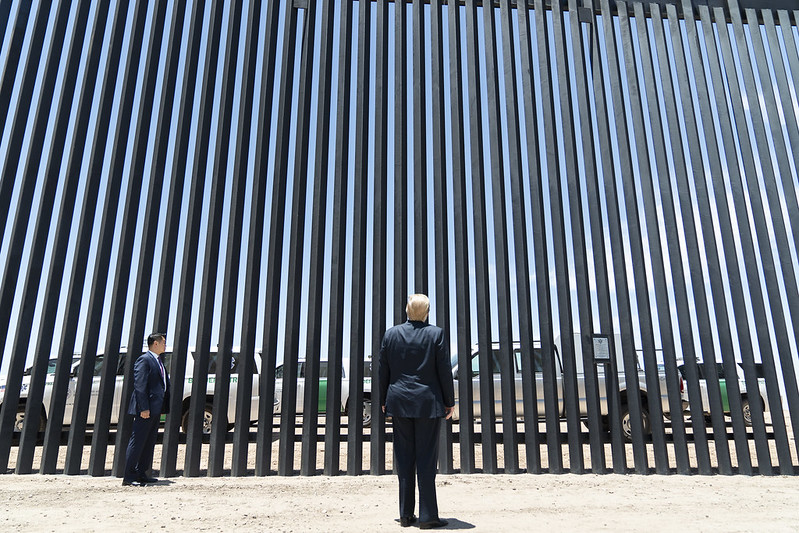
The beat
AFP investigated over use of facial recognition software
The ABC has obtained emails indicating that members of the Australian Federal Police tested facial recognition software from American company Clearview AI. It’s unclear whether the officers had formal approval to use the software, as some of the emails seem to suggest that they installed it on their personal mobile phones. Clearview AI is widely employed by US police forces and the FBI, but its use of photos ‘scraped’ from people’s social media accounts has raised concerns about privacy and a lack of transparency.
US police using military-grade sound weapons
Participants in Black Lives Matter protests in the US have reported an increased use of military-style equipment, including flash-bangs and long-range acoustic devices (LRADs), by police. The protestors say their use has caused trauma and hearing damage. Authorities have long used sound to control crowds, but that practice has often been questioned. New systems are now surfacing to protect people against the sonic blasts. LRADs have also been purchased by Australian state and federal police.
CT scan
Australia’s counterterrorism powers under investigation
The Parliamentary Joint Committee on Intelligence and Security will examine whether a range of counterterrorism powers—including bans on travel to conflict zones and use of preventive detention and control orders—should be renewed. The president of the Law Council of Australia has stressed the need to periodically review and reassess counterterrorism powers and warned that control orders and preventive detention should not be used without compelling evidence.
Jihadist groups expand their presence in the Sahel
The Islamic State in the Greater Sahara and the al-Qaeda-linked militant group Jama’at Nasr al-Islam wal Muslimin are consolidating their presence in the Sahel region of West Africa. Since 2012, these groups have exploited weak governments and ethnic divisions to expand from Mali into Burkina Faso, Niger and surrounding countries. France, the US and the United Nations have deployed troops to the region, but the number of deaths in the conflict zone continues to rise.
Checkpoint
Deadly clashes at Armenia–Azerbaijan border
At least 16 soldiers and civilians have been killed in the latest clash between forces from Azerbaijan and Armenia over the disputed Nagorno-Karabakh region. The US condemned the violence ‘in the strongest terms’, while Russia has said it’s ‘deeply concerned’. The conflict in Nagorno-Karabakh began in 1988 after ethnic Armenians occupied the territory, which was formally part of Azerbaijan, and declared independence. While a Russian-backed ceasefire was signed in 1994, the dispute remains unresolved.
Trump blasts supporters over self-funded border wall
US President Donald Trump has distanced himself from a section of wall along the US–Mexico border in Texas that was built with private funds. Conservative group We Build The Wall raised at least US$25 million and construction was completed in 2019. After reports emerged that the five-kilometre section of wall was already showing signs of deterioration from erosion, Trump tweeted that it had been built ‘to make me look bad’. The group had described it as the most comprehensive security wall in the US.
First responder
WHO begins investigation into origins of Covid-19
The World Health Organization sent a team to China this week to start preparing for an investigation into the origins of the Covid-19 pandemic. The prevailing theory is that the virus was transferred to humans through wildlife sold at a wet market in Wuhan, but Chinese officials and media have argued that it could have emerged outside China. Experts say it may be too late to track down the original source of the virus.
Restrictions reimposed over Victorian coronavirus outbreak
New South Wales has reinstated stricter controls in pubs and will consider further measures, while Victorian authorities will not rule out a move to stage 4 restrictions. Australia will continue to pursue a suppression strategy, with Prime Minister Scott Morrison saying another complete shutdown is ‘not sustainable’. Other countries, including the Philippines and Israel, have also returned to tighter restrictions after experiencing rapid increases in the number of Covid-19 cases.

